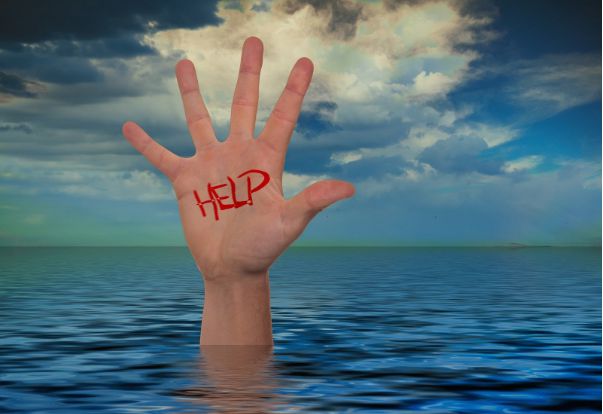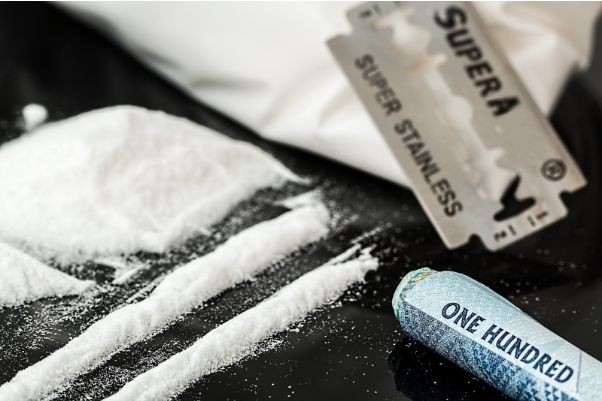Alcohol and drug addiction come in many forms. Consequently, it means that the signs of drug abuse and addiction differ from person to person. It is the lonely teenager smoking marijuana in order to cope with the anguish of being bullied. It is the survivor of sexual assault who uses drugs to escape into a world without pain. It is the high-level executive whose cocaine provides the energy rush needed to meet a crushing deadline. It is the war veteran who uses opioids for chronic pain, the student using “uppers” to get through exams, the bereaved parent who seeks comfort in bottles of wine.
Although we have pictures in our minds of what we think the signs and symptoms addiction looks like, there is no way to tell. The spectre of addiction could even be hiding within your own family – possibly even within you – and you may not realize it. And without recognizing the signs and symptoms of addiction, people with addictions are unable to seek or accept help.
The Difference Between Drug Abuse And Drug Addiction

If drug abuse and addiction can lurk so secretively in our lives, how is it possible to tell whether or not it is there?
The first step is to understand that although many people use the terms “drug abuse” and “drug addiction” interchangeably, there is a difference.
Drug Abuse
Drug abuse is either the use of an illicit substance such as heroin, or the misuse of a legal substance such as alcohol. Examples of drug abuse include the following:
- Drinking more than the recommended amount of alcohol (generally, eight units per week for adult biological females, and fifteen units per week for adult biological males)
- Using any illegal street drug, such as cocaine or heroin
- Using a prescription medication intended for someone else
- Taking more than the prescribed dose of a prescription medication
- Using prescription medication for a purpose other than that for which it was intended
- Ingesting a household substance not meant for human consumption
Drug abuse can happen over any period of time. Furthermore, the signs of drug abuse are far easier to spot. A single instance of substance use can be classified as drug abuse. For some people, drug abuse is a pattern of substance use over time.
Drug Addiction
For most addicts, addiction is the step that follows drug abuse. What happens is that the individual develops a tolerance for the substance, meaning that they have to use higher doses in order to achieve the same effects.
Ultimately, the body and mind become dependent on the substance. Hence, it means they cannot function without it, and in some cases, withdrawal from the drug can have life-threatening consequences. This is without a doubt one of the common signs of drug addiction.
Knowing When Your Substance Use Is A Problem

Knowing when your use of substances is too much is not an exact science. Although the signs of addiction may be an indicator, there are varying factors.
Everyone is different, and the amount of anything that you ingest, whether it is food or alcohol, depends on your age, how much you weigh, whether or not you have any medical conditions, and other factors.
Bearing in mind these individual factors, there are some general signs that can be an indicator of whether you or a loved one are entering the territory of drug abuse:
- You are using an illegal substance in any quantity
- You are using alcohol in any quantity and you are underage – the legal age of alcohol use may vary depending on where you are
- You are not using prescription medication in accordance with your doctor’s instructions, or you are using someone else’s medication
- You have developed an illness or disability as a result of prolonged drug use
- You drug use results in you engaging in potentially risky behaviour without regard for the dangers
- Your close friends and family members have approached you about your use of drugs or alcohol
- You have dipped into money intended for bills or living expenses in order to buy drugs or alcohol
- Your substance use has led to you losing interest in pursuits that were previously important to you
- You have tried unsuccessfully to stop using the drugs or alcohol
Physical Signs Of Drug Abuse
Physical health is often the first thing to be affected, and yet it can be the last thing to be noticed. Many of the physical signs of addiction can also be caused by other conditions.
However, certain combinations of signs and symptoms can be red flags that there is a substance abuse problem going on:
- Bloodshot eyes, or pupils that are unusually large or small
- Rapid weight gain or weight loss that cannot be attributed to another cause
- Abrupt change to sleeping patterns reflected as insomnia, excessive sleep, or frequent waking
- Impaired coordination
- Crusted or flaking skin around the nose and mouth
- Skin redness or track marks that could result from needles
- Excessive coughing in the absence of illness or allergies
- Frequent nausea, vomiting and diarrhea
- A general feeling or look of being “run down”
- Unusual body odours
Related article: The Connection Between Substance Abuse And Mental Health
Mental/Cognitive Signs Of Drug Abuse
While some substances are used primarily for their physical effects, such as painkillers, people generally use drugs and alcohol because of how it makes them feel. For example, cocaine creates a boost of energy and confidence, while opioids generate a rush of euphoria and relaxation.
Any substance used in excess can have a significant impact on mental health and cognitive functioning. The effects, which vary depending on individual factors, may include the following:
- Increased intensity of depression and anxiety symptoms
- Agitation, irritability and mood swings
- Impaired memory
- Inability to concentrate
- Paranoia
Behavioural/Social Signs Of Drug Abuse
It is no surprise that even mild drug use can lead to behavioural changes. How many times have you seen someone have a single glass of wine and suddenly become uncharacteristically talkative or aggressive? Most people consume alcohol in a way that their behaviour is only altered while they are impaired.
The morning after a good party, most of us might have a headache, but our behaviour is back to normal. Someone who requires substance addiction treatment may show some behavioural and social signs and symptoms that persist even when they are not actively using the drug.
Examples of these signs include the following:
- An obsessive need for privacy and a tendency to spend a lot of time alone
- Aggressive behaviour that wasn’t there before
- Loss of interest in activities that used to be important
- Destruction of property
- Lack of concern for close friends and family members
- A sudden tendency to change or cancel plans
- Secrecy with regard to finances
- A tendency to be argumentative and to say hurtful things
- Absenteeism from work or school
- Failure to take care of family obligations
- Involvement in criminal activity
- Disregard for personal hygiene and grooming
The Dangers Of Drug Abuse And Addiction
The more we learn about drug addiction, the more dangerous it seems to become. This is because the drugs themselves are constantly evolving: new powerful strains of marijuana are being created every day. Producers of illegal drugs are finding ways to make substances stronger, and in some cases, more lethal. Drug dealers are combining their substances with products that are toxic to humans, like bath salts and chalk.
This results in a landscape of drugs that can have unpredictable effects. This can pose a problem not only to the user, who may not be aware of exactly how their drug is made up but to first responders, who may not have all of the information they need to effectively treat an overdose. What this means is that the risk of death from accidental and intentional overdoses is a lot higher than it used to be.
Adding to the complication is the fact that a lot of people use more than one substance. Someone who takes benzodiazepines may also be addicted to alcohol. Someone who is addicted to prescription opioids may supplement their drugs with heroin. Any two drugs used in combination can result in the effects of each drug being compounded, which again, can lead to medical complications.
If the signs and symptoms of drug addiction are not caught quickly, the situation may spiral into intense physical complications. Some of the dangers of extended drug use include the following:
- Physical and psychological dependence, which can result in potentially life-threatening withdrawal symptoms.
- Increased risk of stroke or heart attack
- Collapsed veins from intravenous drug use
- Breathing that is too fast or too slow
- Accidental injury resulting from decreased regard for danger
- Increased risk of HIV and hepatitis from shared needles
- Suicidal thoughts and actions
- Changes to brain chemistry, resulting in permanent cognitive declines
- Seizures
- Violent behaviour, leading to the breakup of relationships and the removal of children from the home
- Job loss
Drug Abuse And Addiction Treatment

Many people say that in order for someone with an addiction to get the help they need, they have to first hit rock bottom. The problem is that for many people, “rock bottom” means death or permanent disability. The truth is that anyone with a substance abuse problem can and should get help – the sooner the better.
Addiction can have a catastrophic effect on your life and the lives of those around you. By getting the help you need, you can stop the damage and start the process of healing yourself and mending your relationships with the people you love. Contact 1000 Islands Addiction Rehab & Treatment Centre for addiction treatment programs.
Related article: Beating the Holiday Blues: How to Avoid Depression
